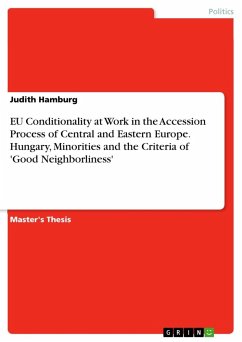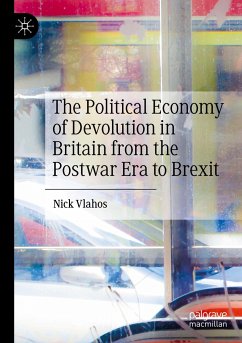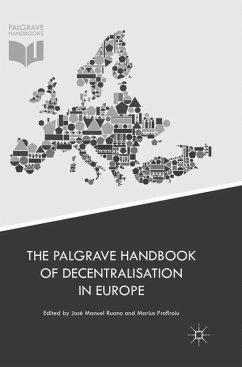
Great Britain in Europe. The Effects of Devolution on EU-UK Relations

PAYBACK Punkte
0 °P sammeln!
Seminar paper from the year 2011 in the subject Politics - International Politics - Region: Western Europe, grade: 1.7, University of Bath, language: English, abstract: Building upon the multi-level governance (MLG) approach, this paper seeks to analyze the impact of Scottish devolution on the British government´s strategic position in relation with Europe.The first section will therefore detail the concept of multi-level governance and the domestic impact of EU politics. This perspective is supplemented by theoretical considerations about devolution and its implications for the British Westm...
Seminar paper from the year 2011 in the subject Politics - International Politics - Region: Western Europe, grade: 1.7, University of Bath, language: English, abstract: Building upon the multi-level governance (MLG) approach, this paper seeks to analyze the impact of Scottish devolution on the British government´s strategic position in relation with Europe.The first section will therefore detail the concept of multi-level governance and the domestic impact of EU politics. This perspective is supplemented by theoretical considerations about devolution and its implications for the British Westminster system. Afterwards, an analysis of Scottish rights and obligations as a devolved polity shall shed light on de facto alterations that came along with the 1998 Scotland Act. The paper restricts itself to the purely structural adaptations. A discussion, why devolution towards Edinburgh has led to a win-win-outcome for Whitehall, will complete the argumentation.Indeed, the Scotland Act of1998, for instance, meant serious changes in the British political system and the bureaucratic state whilst political competencies over various policy areas were shifted from central government to subnational authorities. This kind of decentralization away from the British executive in Whitehall was the most radical constitutional change this country has seen since the Great Reform Act of 1832. The United Kingdom (UK) is therewith much influenced by a new European paradigm, referred to as MLG. In this post-national polity, the nation state does not any longer appear as the epicenter of domestic decision-making and foreign policy representation. The old Westminster model (WM) had served its time and was henceforth replaced by a quasi-federal state, rather than a unitary state. New actors, above all the regional governments, gain power and may bypass London as the gatekeeper of UK European policy formulation.













